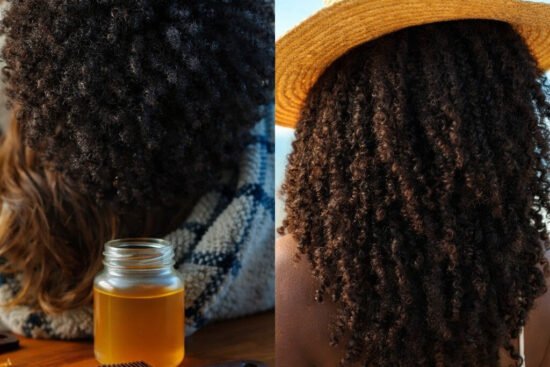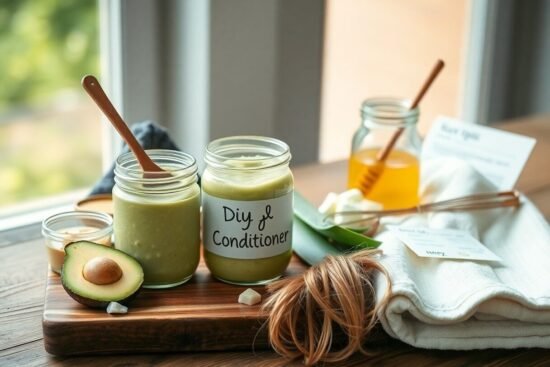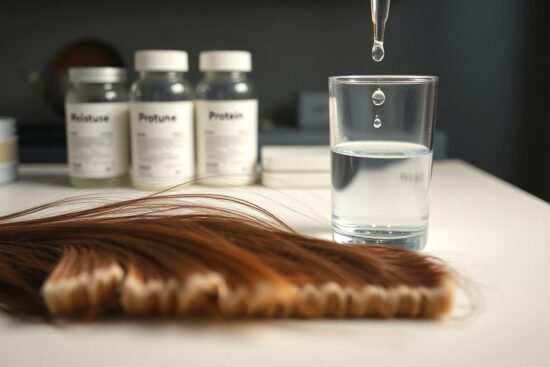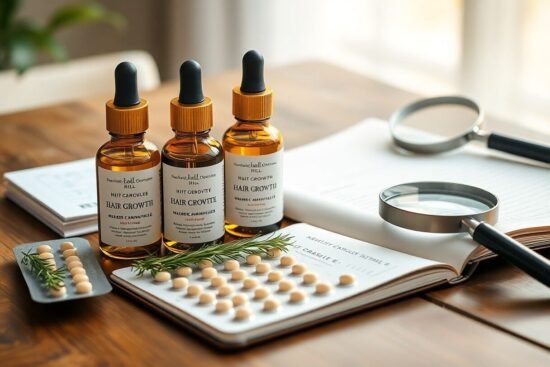
As an African American woman over 50, your skincare routine has likely evolved and adapted over the years. Now, in your 50s, you may be dealing with different concerns such as dryness, wrinkles, and age spots. Your skin may also be more sensitive and in need of extra care. It’s important to find the right skincare products that cater to your specific needs, while also considering the unique characteristics of black skin. In this article, we will explore the best skincare products for African American women over 50, focusing on products that address common issues and promote healthy, radiant skin. Whether you’re looking for a moisturizer, serum, or sunscreen, we’ll provide recommendations to help you maintain a glowing complexion and feel confident in your skincare routine. So, let’s dive in and discover the best products to nourish and care for your beautiful skin!
Understanding Your Skin Type
Importance of knowing your skin type
Knowing your skin type is essential for maintaining healthy and beautiful skin. It allows you to choose the right skincare products and treatments tailored to your specific needs. Understanding your skin type can help you address common problems such as acne, dryness, or sensitivity more effectively. By identifying your skin type, you can develop a personalized skincare routine that targets your skin concerns and promotes overall skin health.
Different skin types
There are four primary skin types: oily, dry, combination, and sensitive. Each skin type has distinct characteristics and requires different approaches to skincare.
- Oily Skin: Oily skin is characterized by excess sebum production, resulting in a shiny, greasy appearance. People with oily skin are prone to acne and enlarged pores.
- Dry Skin: Dry skin is often associated with a lack of natural oils, leading to tightness, flakiness, and a dull complexion. Dry skin may feel rough and is more prone to fine lines and wrinkles.
- Combination Skin: Combination skin refers to having both oily and dry areas on the face. Typically, the T-zone (forehead, nose, and chin) is oilier, while the cheeks are dry.
- Sensitive Skin: Sensitive skin is easily irritated and reacts strongly to various factors such as harsh ingredients, weather conditions, or internal imbalances. It may appear red, itchy, or inflamed.
How to determine your skin type
Determining your skin type is relatively straightforward and can be done at home. Here are some guidelines to help you identify your skin type:
- Oily Skin: If your face appears shiny or greasy throughout the day, particularly in the T-zone, and you frequently experience breakouts, you likely have oily skin.
- Dry Skin: If your skin feels tight, looks dull, and has rough patches or flakes, especially after cleansing, your skin is likely dry.
- Combination Skin: If you observe an oily T-zone while the rest of your face feels dry, you likely have combination skin.
- Sensitive Skin: If your skin reacts easily to new products, becomes red or irritated, and is prone to itching or burning sensations, you likely have sensitive skin.
Keep in mind that genetics, hormonal changes, climate, and lifestyle factors can also influence your skin type. If you’re unsure about your skin type or have ongoing skin concerns, it’s advisable to consult with a dermatologist for professional guidance.
Skin Care For Different Skin Types
Oily skin care products
If you have oily skin, it’s essential to use skincare products that help balance oil production, minimize shine, and prevent breakouts. Look for oil-free or water-based cleansers, lightweight moisturizers, and non-comedogenic (non-pore-clogging) products. Ingredients like salicylic acid and tea tree oil can be beneficial in controlling excess oil and reducing acne.
Dry skin care products
To combat dryness, it’s crucial to choose skincare products that provide intense hydration and help retain moisture. Look for creamy or oil-based cleansers, rich moisturizers, and products containing hydrating ingredients like hyaluronic acid, shea butter, or ceramides. Avoid harsh or drying ingredients such as alcohol, fragrances, and sulfates.
Combination skin care products
For combination skin, a balanced approach is key. Use gentle cleansers that don’t strip the skin of its natural oils and focus on moisturizing dry areas while controlling oil production in the T-zone. Lightweight, non-greasy moisturizers and oil-free products work well for combination skin. Incorporating exfoliation with chemical or enzymatic exfoliants can help maintain smooth texture and even skin tone.
Sensitive skin care products
If you have sensitive skin, it’s important to choose gentle and fragrance-free skincare products to minimize irritation. Look for hypoallergenic and non-irritating cleansers, moisturizers without added fragrances, and products specifically formulated for sensitive skin. Ingredients such as aloe vera, chamomile, and oat extract are known for their soothing and calming properties.
Daily Skin Care Regimen
Step-by-Step guide to a skincare routine
A basic skincare routine typically involves cleansing, toning, moisturizing, and applying sunscreen. Here’s a step-by-step guide to help you establish a daily skincare regimen:
- Cleansing: Start by washing your face with a gentle cleanser suited for your skin type. Massage the cleanser onto damp skin in gentle, circular motions, then rinse thoroughly.
- Toning: After cleansing, use a toner to remove any remaining residue and balance the pH of your skin. Apply the toner using a cotton pad or by patting it gently onto your face.
- Moisturizing: Apply a moisturizer suited for your skin type and concerns. Moisturizers help hydrate, nourish, and protect your skin, locking in moisture and preventing dryness.
- Sunscreen: As a vital step in your skincare routine, apply a broad-spectrum sunscreen with at least SPF 30 to protect your skin from harmful UVA and UVB rays. Reapply every two hours if exposed to the sun for an extended period.
Differences between daytime and nighttime routines
Daytime and nighttime skincare routines may have some variations in product selection and order of application. During the day, prioritize protecting your skin from environmental stressors and sun damage. In addition to sunscreen, consider using antioxidant-rich serums and lightweight moisturizers. At night, focus on repairing and nourishing your skin. Incorporate products like retinol or other anti-aging treatments, hydrating masks or night creams, and eye creams.
Importance of consistency and frequency
Consistency and frequency are key to achieving and maintaining healthy skin. Establishing a regular skincare routine and sticking to it allows your skin to adjust and benefit from the products you use. Consistency also helps track any improvements or changes in your skin. Aim to cleanse, moisturize, and apply sunscreen twice a day, in the morning and before bed. Depending on your skin concerns, you can incorporate additional treatments or masks 1-3 times per week.
Role of Sun Protection
Understanding the impact of sun damage
Sun damage is a common skin concern that can lead to various issues such as premature aging, dark spots, wrinkles, and even skin cancer. Prolonged sun exposure without proper protection can cause damage to the skin cells, break down collagen, and trigger the production of melanin, resulting in uneven skin tone and hyperpigmentation. Understanding the impact of sun damage emphasizes the importance of incorporating sun protection into your daily skincare routine.
Importance of SPF in daily routine
SPF, or sun protection factor, is a crucial component of sun care. It measures how well a sunscreen protects against UVB rays, which are responsible for sunburns and contribute to skin cancer risk. Incorporating sunscreen with at least SPF 30 into your daily routine helps shield your skin from harmful UVA and UVB rays, preventing sunburns, skin damage, and minimizing the risk of skin cancer.
Best sun protection products
When selecting sunscreen, opt for broad-spectrum protection that guards against both UVA and UVB rays. Look for a lightweight formula that suits your skin type and preference, whether it’s a moisturizing cream, gel, or mineral sunscreen. Some popular and reputable sun protection brands include Neutrogena, La Roche-Posay, Fenty Skin, and Buttah Skin by Dorion Renaud. Choose a sunscreen that feels comfortable on your skin and, ideally, offers additional benefits such as hydration or antioxidants.
Special Treatments and Serums
What are serums and their benefits
Serums are lightweight, highly concentrated skincare products with active ingredients designed to target specific concerns. They have a thinner consistency than moisturizers, allowing them to penetrate deeper into the skin and deliver potent ingredients. Serums provide various benefits, such as hydration, anti-aging effects, brightening, or addressing specific skin concerns like acne or hyperpigmentation.
Best serums for aging skin
For aging skin, serums containing ingredients like retinol, hyaluronic acid, vitamin C, and peptides can be highly beneficial. Retinol promotes collagen production, reduces the appearance of wrinkles, and improves skin texture. Hyaluronic acid helps retain moisture, resulting in plumper, firmer skin. Vitamin C brightens the complexion and evens out skin tone, while peptides support collagen production and diminish the signs of aging.
How to use serums correctly
To use serums effectively, start with a clean, toned face. Apply a few drops of the serum onto your fingertips and gently massage it into your skin, focusing on areas where you have specific concerns. Allow the serum to absorb fully before applying moisturizer or other skincare products. Serums are typically used in the morning and evening, but be mindful of the specific instructions provided with the product as some serums may recommend only once-daily use.
Addressing Common Skin Problems
Acne and breakouts
Acne is a common skin concern that can affect people of all ages. It occurs when hair follicles become clogged with oil, dead skin cells, and bacteria, resulting in inflammation and the formation of pimples, blackheads, or whiteheads. To address acne, incorporate skincare products with acne-fighting ingredients like salicylic acid or benzoyl peroxide. Use non-comedogenic products, avoid touching or picking at your face, and maintain a consistent skincare routine.
Dryness and hydrating solutions
Dryness can result from various factors, including environmental factors, genetics, or certain skincare products. To combat dryness, focus on gentle cleansers that don’t strip away moisture and opt for hydrating and moisturizing products. Look for ingredients like hyaluronic acid, glycerin, or ceramides, which help attract and retain moisture. Additionally, using a humidifier, avoiding hot showers, and drinking plenty of water can further support hydration.
Uneven skin tone and hyperpigmentation
Uneven skin tone and hyperpigmentation can be caused by sun exposure, hormonal changes, or post-inflammatory hyperpigmentation from acne or skin injuries. To address these concerns, incorporate products containing ingredients like vitamin C, niacinamide, or retinol, which can help brighten the complexion and even out skin tone. Additionally, daily use of sunscreen is crucial to prevent further pigmentation and protect the skin from damaging UV rays.
Wrinkles and fine lines solutions
As we age, wrinkles and fine lines become more prominent. To target these signs of aging, consider using skincare products with retinol, peptides, or hyaluronic acid. Retinol stimulates collagen production and promotes cell turnover, reducing the appearance of wrinkles. Peptides help support collagen synthesis, while hyaluronic acid hydrates the skin and plumps up fine lines. Consistency is key in combating wrinkles, so incorporate these products into your daily skincare routine.
Natural and Homemade Solutions
Importance of using natural ingredients
Natural ingredients can provide effective results while minimizing the risk of adverse reactions. They often contain antioxidants, vitamins, and minerals that nourish and rejuvenate the skin. When choosing natural skincare products, look for organic or plant-based ingredients and avoid harmful chemicals, preservatives, or fragrances that may irritate the skin. However, it’s essential to note that natural ingredients can still cause allergies or sensitivities, so always patch test new products.
Best homemade face masks and treatments
Homemade face masks and treatments can be a fun and affordable way to address specific skin concerns. Here are a few popular recipes:
- Honey and Yogurt Mask: Mix equal parts honey and plain yogurt, apply it to your face, and leave it on for 15-20 minutes. This mask provides hydration and helps soothe and brighten the skin.
- Oatmeal and Banana Mask: Mash a ripe banana and mix it with cooked oatmeal to create a paste. Apply it to your face for 15 minutes, then rinse off. This mask is excellent for providing moisture and calming sensitive skin.
- Lemon and Sugar Scrub: Mix fresh lemon juice with sugar to create a scrub. Gently massage it onto your face in circular motions, then rinse off. This scrub helps exfoliate dead skin cells and promote a brighter complexion.
Remember, homemade treatments may not offer the same efficacy or stability as professionally formulated products. Use them in moderation, and discontinue use if any irritation occurs.
Potential risks and how to avoid them
While natural and homemade solutions can be beneficial, it’s crucial to be aware of potential risks and take precautions. Some natural ingredients can cause allergies or sensitivities, so always patch test new products on a small area of skin before applying them to your face. Additionally, ensure the ingredients are fresh and not expired to avoid adverse reactions. If you have any existing skin conditions or concerns, consult with a dermatologist before using homemade remedies to avoid potential aggravation.
Products Review
Top skincare brands for African American women
There are several skincare brands that cater specifically to the needs of African American women. Some popular options include Neutrogena, La Roche-Posay, Beauty of Joseon, and Fenty Skin. These brands offer a wide range of products suitable for various skin types and concerns, such as cleansers, moisturizers, toners, exfoliators, and sunscreens. It’s essential to choose products that address your specific skin concerns and are formulated to work well with melanin-rich skin.
Black-owned skincare brands
Supporting black-owned skincare brands is crucial for promoting diversity and representation in the industry. Some notable black-owned skincare brands include Buttah Skin by Dorion Renaud, Black Girl Sunscreen, and Nola Skinsentials. These brands offer a selection of products formulated to cater to different skin types and concerns, with a focus on natural ingredients and addressing the unique needs of melanated skin.
Best moisturizers, toners, cleansers, exfoliators
The best moisturizers, toners, cleansers, and exfoliators will vary depending on individual skin types and concerns. However, some popular and well-regarded options include:
- Moisturizers: Neutrogena Hydro Boost Gel Cream, CeraVe Daily Moisturizing Lotion, and Buttah Skin Facial Shea Butter.
- Toners: Thayers Witch Hazel Toner, Paula’s Choice Skin Perfecting 2% BHA Liquid Exfoliant, and Nola Skinsentials Aloe Green Tea Balancing Toner.
- Cleansers: Cetaphil Gentle Skin Cleanser, Neutrogena Oil-Free Acne Wash, and Buttah Skin Cleanser.
- Exfoliators: Paula’s Choice Skin Perfecting 8% AHA Gel Exfoliant, The Ordinary AHA 30% + BHA 2% Peeling Solution, and Glow Recipe Watermelon Glow PHA + BHA Pore-Tight Toner.
Remember to choose products that are suitable for your skin type and concerns and incorporate them into a consistent skincare routine for optimal results.
Professional Treatments
When to consider professional treatments
Professional skincare treatments can be beneficial for addressing specific skin concerns that may require more intensive or targeted approaches. Consider seeking professional treatments when you have persistent or severe acne, deep wrinkles, scars, or hyperpigmentation that hasn’t responded to at-home treatments. Additionally, if you’re unsure about your skin condition or need expert guidance, consulting with a dermatologist can help determine the most suitable professional treatments for your needs.
Different types of professional treatments
There are various professional skincare treatments available, depending on your specific concerns and goals. Some common types of professional treatments include:
- Chemical Peels: These treatments involve applying a chemical solution to the skin, which exfoliates the outer layer and promotes cell turnover. Chemical peels can improve skin texture, reduce pigmentation, and target signs of aging.
- Microdermabrasion: This treatment uses a device to exfoliate the skin, removing dead skin cells and stimulating collagen production. Microdermabrasion can improve skin tone, reduce fine lines, and promote a smoother complexion.
- Laser Therapy: Laser treatments utilize focused light energy to target specific skin concerns, such as acne scars, hyperpigmentation, or unwanted hair. Laser therapy can help improve skin texture, reduce pigmentation, and stimulate collagen production.
- Microneedling: Microneedling involves creating tiny punctures in the skin to stimulate collagen production and promote skin rejuvenation. This treatment can improve the appearance of scars, wrinkles, and uneven skin tone.
The specific treatment recommended for you will depend on your skin concerns, skin type, and the expertise of your skincare professional.
Cost and potential risks
The cost of professional skincare treatments can vary depending on the type of treatment, location, and the expertise of the skincare professional. It’s advisable to research and consult with multiple providers to get an idea of pricing in your area. Keep in mind that some treatments may require multiple sessions for optimal results.
As with any skincare treatment, there are potential risks involved. It’s crucial to choose a reputable and experienced skincare professional, follow post-treatment instructions carefully, and disclose any medical conditions or medication use to minimize potential risks. Consult with your skincare professional to understand the potential risks specific to the treatment you’re considering.
Lifestyle and Nutrition
Importance of a healthy lifestyle and balanced diet
Maintaining a healthy lifestyle and balanced diet is essential for overall well-being, including skin health. Your skin is a reflection of your internal health, and certain lifestyle factors can impact its appearance. By adopting healthy habits such as regular exercise, stress management, adequate sleep, and a balanced diet, you can support your skin’s health and appearance from within.
Specific foods and beverages that are good for the skin
Certain foods and beverages can provide beneficial effects for the skin when incorporated into a balanced diet. Here are some examples:
- Fruits and vegetables: Rich in antioxidants, vitamins, and minerals, fruits and vegetables help protect against free radicals and promote overall skin health. Include a variety of colorful fruits and vegetables in your diet, such as berries, spinach, kale, and sweet potatoes.
- Healthy fats: Foods rich in omega-3 fatty acids, like salmon, avocados, and walnuts, help maintain skin hydration and elasticity.
- Water: Staying hydrated is crucial for skin health. Drink plenty of water throughout the day to maintain moisture and flush out toxins.
- Green tea: Green tea contains antioxidants that help protect against sun damage and inflammation. Incorporate a cup or two of green tea into your daily routine.
Exercise and its impact on skin health
Regular exercise offers various benefits for the skin. Physical activity promotes healthy blood circulation, which delivers oxygen and nutrients to the skin cells, improving their overall health and appearance. Exercise also helps manage stress levels, which can contribute to skin issues such as acne or inflammation. Additionally, sweating during exercise aids in expelling toxins from the body, helping to achieve a clearer complexion. Aim for at least 30 minutes of moderate-intensity exercise most days of the week to reap the skin-enhancing benefits.
In conclusion, understanding your skin type is vital for maintaining healthy and beautiful skin. Each skin type requires specific care, and incorporating a consistent skincare routine is key to achieving optimal results. Proper sun protection, special treatments, and a healthy lifestyle are all essential components of a well-rounded skincare regimen. By taking care of your skin and addressing any concerns, you can enjoy healthy, radiant skin at any age.











